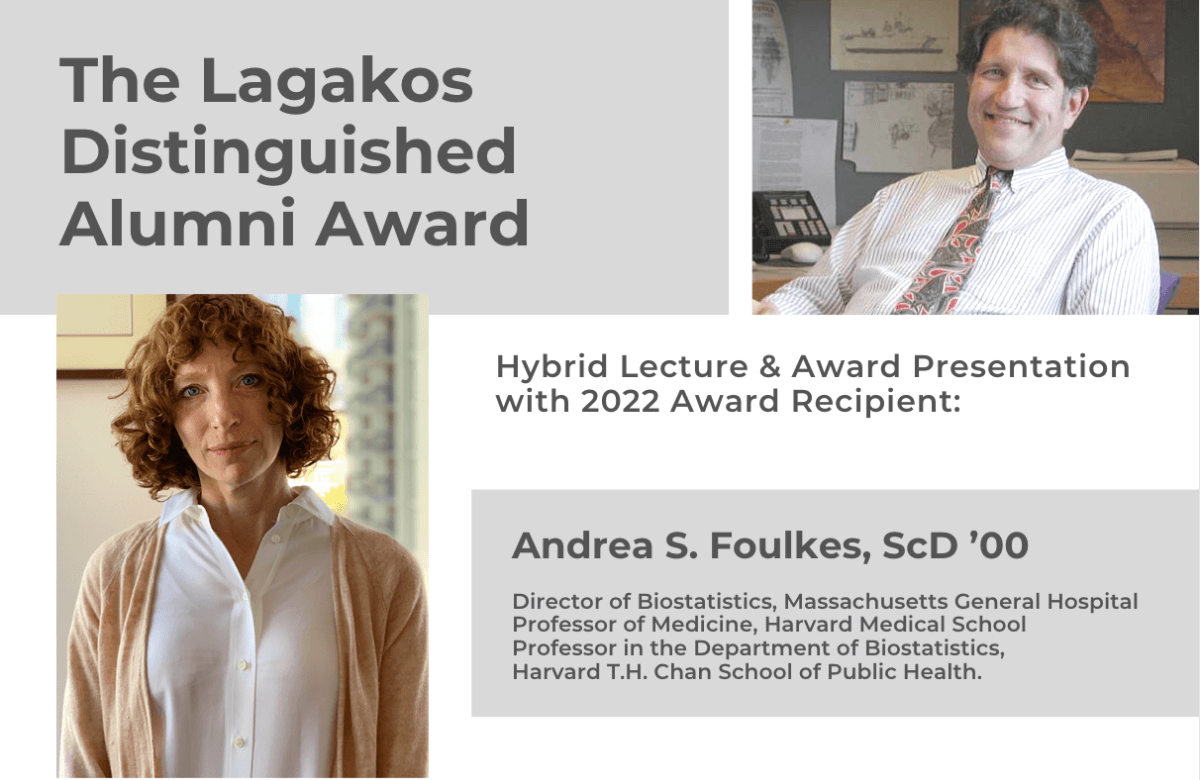Please join us for the Lagakos Distinguished Alumni Award with 2022 awardee, Dr. Andrea Foulkes, ScD ’00! Thursday, October 13, 20221:00-2:00 pm – Career Development Lunch for students & postdocs | Bldg 2, Rm 426RSVP to Attend Lunch 4:00 – Lecture & Award Presentation | Kresge 502 (also will be streamed via Zoom)5:00pm – Reception | Kresge Cafeteria AtriumRSVP to Attend Lecture/Reception*Events are only open to the Harvard, DFCI, and Longwood community and will follow any current COVID-19 protocols. More information to follow.
Dr. Foulkes’ talk will be on: Biostatistics and Infectious Disease Research: New Challenges in the Prevention and Treatment of Long-COVIDFor the past four decades, owing in large part to Dr. Steve Lagakos’ pioneering vision and leadership with the establishment of the Center for Biostatistics and AIDS Research (CBAR), Biostatisticians have guided the advancement of infectious disease research and led the development of novel and effective prevention and treatment strategies for individuals with HIV/AIDS, tuberculosis, influenza, and anti-biotic resistant bacterial infections. In the past two years, as the world has been swept by the COVID-19 pandemic and “big data” resources are now ubiquitous, the critical role of Biostatisticians in shaping robust research efforts and implementing principled analytic strategies is perhaps even more evident. In this talk, I discuss my role as the PI of the Data Resource Core for the Researching COVID to Enhance Recovery (RECOVER) project and highlight some of the specific statistical challenges in the study of Post-Acute Sequalae of SARS-CoV-2 (PASC). Among SARS-CoV-2-infected individuals, we have seen the emergence of a subset of patients with persistent symptoms, including fatigue, shortness of breath, brain fog, anxiety, and depression lasting in duration from several months to years. These symptoms, collectively known as PASC, or “long-COVID”, manifest differently across patient groups, wax and wane over time, and range from mild to incapacitating, with profound effects on quality of life. At the same time, the rapid materialization of large-scale observational data, particularly through RECOVER and electronic health record resources, has generated enormous opportunity for novel discovery and enhanced clinical decision-making tools that could lead to effective prevention strategies and improved outcomes for individuals infected with SARS-CoV-2. The statistical challenges inherent in effectively and appropriately leveraging these novel data resources and the specific challenges of studying PASC are numerous, and Biostatisticians will continue to have a central and indispensable role to play in the coming years to ensure efficient research and robust findings in SARS-CoV-2/PASC clinical research.




